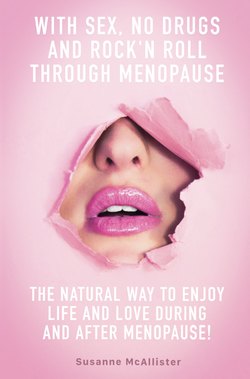Читать книгу With SEX, No Drugs and Rock'n Roll Through Menopause - Susanne McAllister - Страница 39
Lifestyle changes or natural remedies for the management of hot flashes:
ОглавлениеStay away from warm areas and do not sleep with warm blankets or warm pyjamas. Make sure your bedding and nightwear are made out of natural fibres like cotton, bamboo or silk.
Avoid hot foods and drinks that can heat up the body and can trigger hot flashes
Decrease alcohol intake as this can increase the amount of facial flushing you get with hot flashes.
Decrease the amount of stress you are under.
Quit smoking or do not start smoking during this time of your life.
Wear several layers of clothing that can be peeled off when you begin to get hot.
Buy a portable fan so you can fan yourself when you get hot.
Exercise regularly every day for at least thirty minutes. Try not to exercise right before you sleep as this can affect your ability to get to sleep.
Decrease stress through the use of biofeedback, meditation, yoga, nia, qi gong, or Tai chi. These are natural ways of reducing the amount of perceived stress.
Try this breathing technique when you get a hot flash: take in deep abdominal breaths, in through your nose and out through the mouth. Breathe slowly, only 5-7 times per minute.
Use a bedside fan to remain cool at night.
Drink cool water if you wake up with a hot flash or night sweats during your sleep.
Use a cooling pillow or turn your pillow often so that you don’t have to sleep on the hot side of the pillow all night. Keep a cool pack under the pillow so you can flip to a cool pillow during the night.
Try to lose weight if you are overweight. Women who are obese have more problems with hot flashes than women of normal weight do. You can lose weight through healthy eating and maintaining an exercise program that will help you decrease your hot flashes.
Acupuncture. A trained acupuncturist can help you reduce the blocked flow of qi energy so as to decrease the number and intensity of hot flashes.
Try eating foods high in phytoestrogens
We will go more into detail about which supplements and herbs can help in chapter 7.
One study showed that exercise decreased the incidence and intensity of hot flashes. The study was done on 21 women who were having menopausal symptoms. Fourteen of the women took part in an exercise program for four months, while the rest did not change their exercise activities. After the study, the women completed a questionnaire that asked them about how many hot flashes they had and how intense the hot flashes were. They also caused hot flashes by placing the participants in a hot water suit and recorded their body responses.
The exercising participants took part in a gym-based exercise program, in which they used a stationary bicycle, a treadmill, a cross-trainer, and/or a rowing machine. They were asked to exercise initially for thirty minutes, later increasing to 45-minute exercise sessions a day for at least five days a week.
After the 16-week study, the researchers measured the incidence and severity of the hot flashes each woman experienced. They found that, in the women who exercised, the amount of sweating during a hot flash was markedly reduced. There was a decrease in blood flow to the forearms by 7 percent and a decrease in blood flow to the chest by 9 percent. There was also a decrease in blood flow to the brain in those women who exercised.
Women who did not exercise had no difference in the incidence and severity of hot flashes. While the study was small, it did indicate the possibility that exercise could help women with hot flashes.
Here are my other suggestions:
